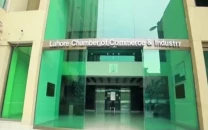Obstacles in place: Despite encouraging policies, foreign investment not forthcoming
To achieve policy objectives, country has to tackle red tape, law and order.

To achieve policy objectives, country has to tackle red tape, law and order.
Pakistan offers one of the most liberal investment regimes in Asia, but still it encounters hurdles to attracting foreign investment aimed at increasing economic productivity and creating jobs for the youth bulge.
After offering the maximum, the government has now come up with an amnesty package to woo investors even at the risk of compromising its standing among nations of the world.

In 1997, the country opened its services, social, infrastructure and agriculture sectors for foreign and domestic investors. Before that, foreign investment was restricted to manufacturing industry only. Since then, successive governments have by and large been content with an open investment policy with a resolve to protect the interest of investors.
These principles have been reiterated in the Investment Policy of 2013. All sectors and activities are open for foreign investment except for investment in arms and ammunition, high explosives, radioactive substances, securities, currency, mint and consumable alcohol. No minimum requirement has been set for foreign equity investment in any sector. Also, there is no upper ceiling, except for specific sectors including airline, banking, agriculture and media.

Foreign investors in any sector enjoy the liberty and can repatriate profits, dividends or other funds in the currency of the country from where the investment originated.
Despite such an encouraging policy, the country has been struggling to restore its former glory when foreign investment hit a record $5.3 billion in 2007-08, constituting about 23% of gross domestic product.
Since 2008, investment has been continuously declining. In previous fiscal year 2012-13, investment stood at $1.5 billion or 14.3% of GDP. The sluggish investment is leading to an increase in imports, highlighting the country’s heavy reliance on consumption, which is now driving economic growth.

What is the PML-N doing
Since the Pakistan Muslim League-Nawaz government took power in June this year, there has been a ray of hope that it would take measures to give a boost to investment. It has already set an ambitious target to bring $2.5 billion in the first year.
However, in the first four months (July-October) of the current fiscal year, the results are not encouraging. According to State Bank of Pakistan’s statistics, net foreign investment in four months stood at just $283.7 million, $32 million or 12.6% higher than the corresponding period of last year.

The increase was not because of higher inflows, it was actually the result of a slowdown in outflows. In four months, investment inflows were $650 million, slightly less than a year earlier. But outflows were $362 million compared to $404 million in the previous year.
“Pakistan’s issue is not policies but implementation of the policies,” believed Board of Investment Chairman Mohammad Zubair. He could not find anything in the investment policy which could discourage foreign investors.
Zubair stressed that individual and team work would make a difference in the times ahead, believing that efforts being put in by his team would start giving results after six to eight months.
By not making any change in existing investment policies, the government has undoubtedly given a positive signal to the foreign investors. However, tax concessions to certain industries and frequent changes in tax laws are the challenges which the foreign investors believe should be addressed.
Prime Minister Nawaz Sharif is widely considered investor-friendly and has lived up to his reputation by announcing an incentive package for green field industrial projects. As part of the incentives, no question will be asked about the source of investment if money is pumped into new or existing projects from January 2014.
Still, risks remain that proceeds from narcotics trade and money-laundering could be used for investment purposes despite the government’s insistence that such receipts would be subject to scrutiny.

The Investment Policy of 2013 revolves around the themes of reducing cost of doing business, streamlining the processes required for doing business, ease of doing business with creation of industrial clusters and special economic zones and links between trade, industrial and monetary policies for greater convergence.
To achieve these, no efforts have yet been made to tackle red tape and improve governance. Appointments on key posts depend on personal liking and disliking, which could scuttle moves to address the real issues hurting investments.
Another major obstacle is the law and order situation, which is not likely to improve at least for a couple of years.
Published in The Express Tribune, December 9th, 2013.
Like Business on Facebook, follow @TribuneBiz on Twitter to stay informed and join in the conversation.



















COMMENTS
Comments are moderated and generally will be posted if they are on-topic and not abusive.
For more information, please see our Comments FAQ